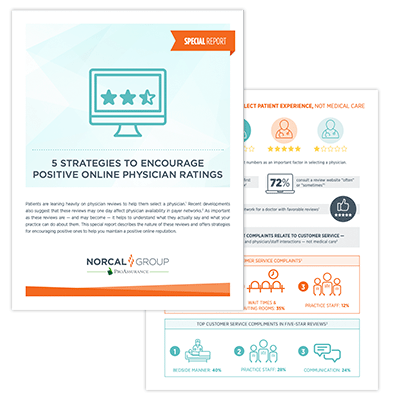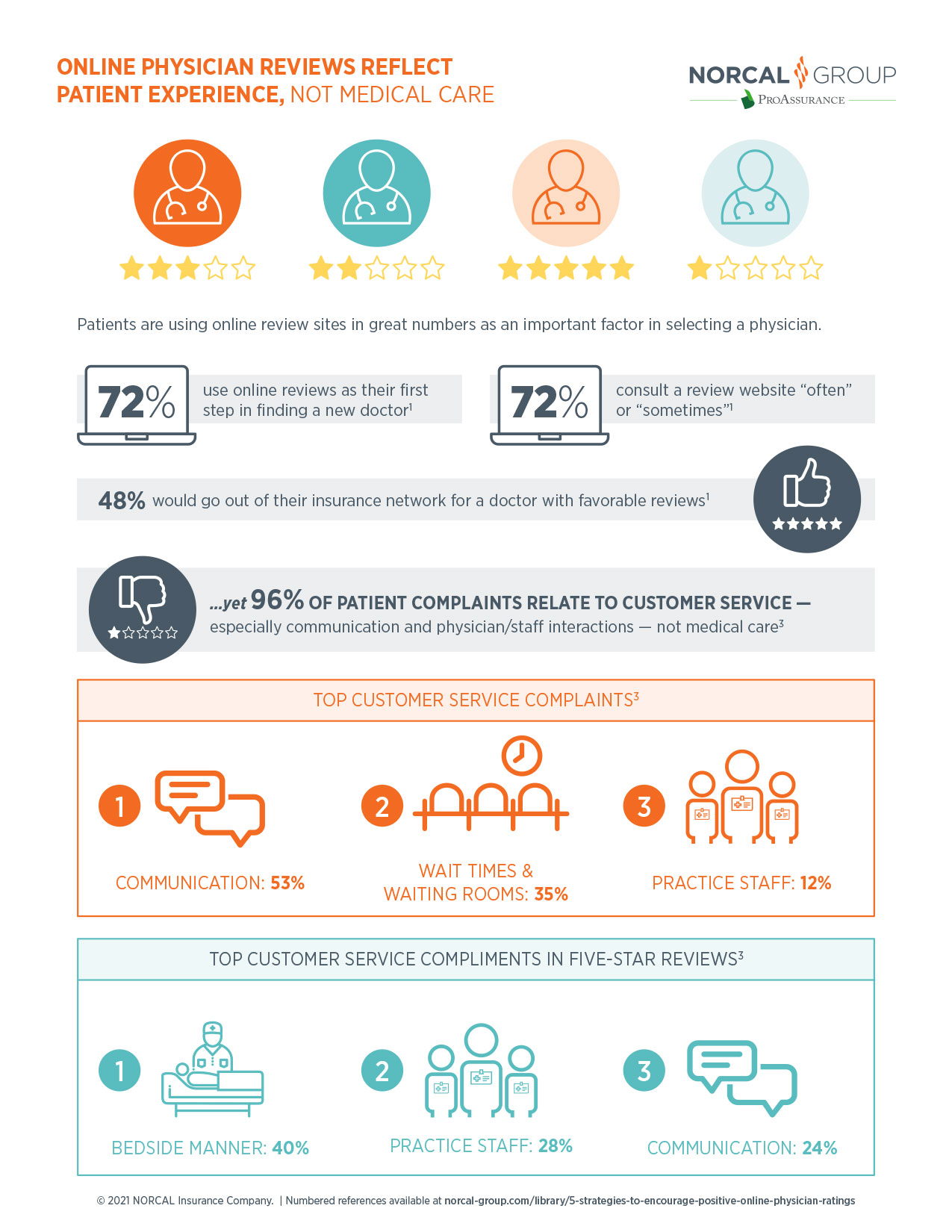Patients are leaning heavily on physician reviews to help them select a physician.1 Recent developments also suggest that these reviews may one day affect physician availability in payer networks.2 As important as these reviews are—and may become—it helps to understand what they actually say and what your practice can do about them. This special report describes the nature of these reviews and offers strategies for encouraging positive ones to help you maintain a positive online reputation.
Learn More »Patient experience—“the sum of all interactions, shaped by an organization’s culture, that influence patient perceptions across the continuum of care”1—is playing an increasingly significant role in the business success of medical practices. The impact is felt throughout the practice: online physician ratings, reimbursement levels, patient acquisition, and patient retention. In light of this, practices should consider ways to enhance the overall experience that patients have with their practices.
Learn More »Improving Physician Empathy: Techniques and Training Resources
Although clinical experience develops many skills, physicians benefit from external input for improving communication skills.1,2 Physicians can use the following techniques and training resources to improve their communication with patients and demonstrate empathy.
Learn More »Case Studies: Physician Empathy Can Decrease Liability Risk
Although physician empathy may seem to be a low priority in comparison to clinical skill, research indicates that physician empathy has wide-ranging effects for both physicians and patients, including better patient outcomes, greater patient satisfaction, less stress and burnout, and — as the following case studies show — it can affect whether a patient files a medical liability lawsuit.
Learn More »Encourage Positive Online Physician Ratings with These Best Practices
Patients are turning to sources such as ZocDoc, HealthGrades, Vitals, Yelp and other online physician review sources, and reviews are impacting where patients seek care. A 2019 survey conducted by Software Advice found that 72% percent of respondents used online reviews as a first step in seeking a medical provider. While this percentage may appear shockingly high to some, it accurately reflects our nation’s current consumer landscape. With similar models for selecting restaurants, clothing, cars, and other retail businesses, it was only a matter of time until the healthcare industry followed. Understanding what these online reviews say — and don’t say — can help your practice develop a strategy for improving these reviews and aid you in developing a positive reputation online.
Learn More »





